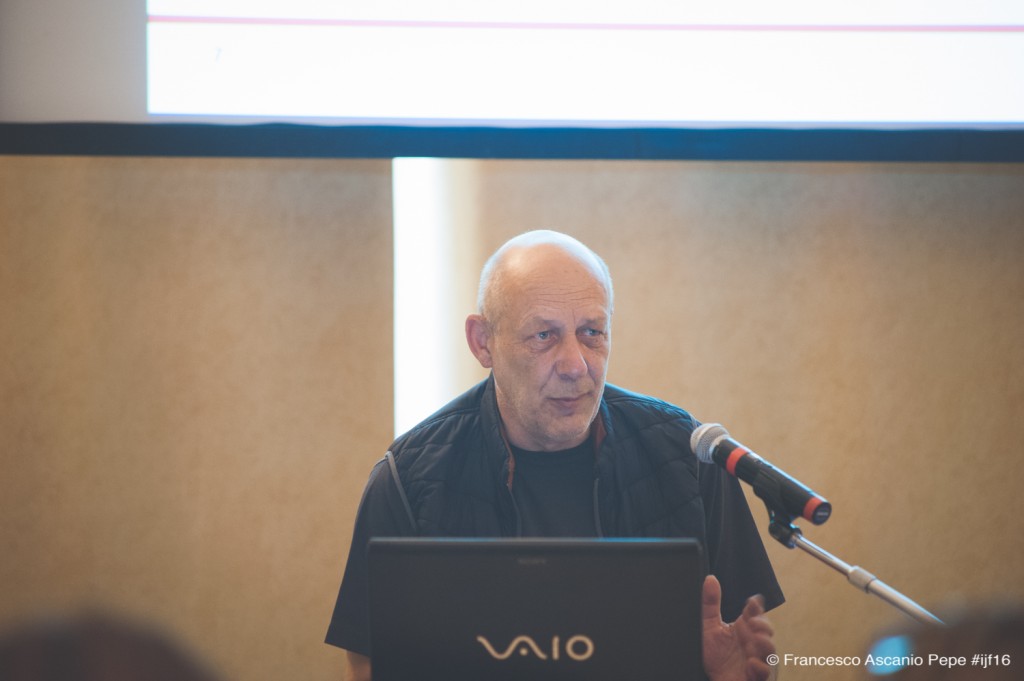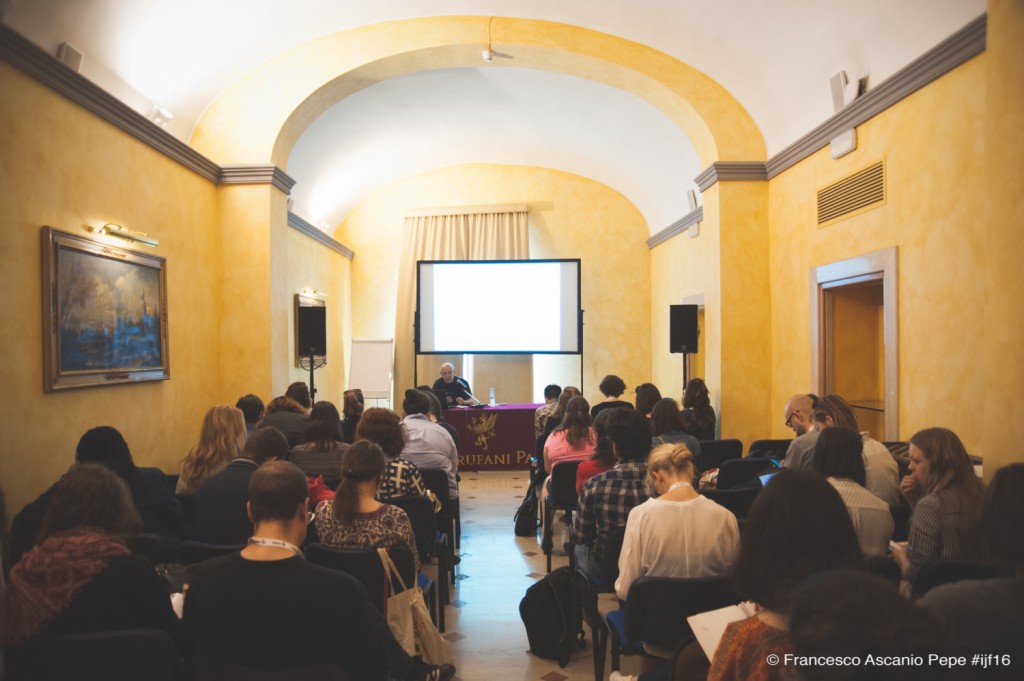
For many journalists, grants are an invaluable source of funding. Sometimes, they can even be the only available source. Yet, often it is extremely difficult to get a grant, especially for those who apply for the first time.
Wilfried Rütten, director of the European Journalism Centre (EJC), gave a presentation on “How (not) to win a journalism grant” at this year’s International Journalism Festival in Perugia, where he highlighted the most common mistakes journalists make when submitting grant applications – and how to avoid them.
Start with the right attitude
One of the first things to remember when submitting a proposal for a grant is to approach the application process with the right mindset. Many people think “I’m a journalist, I can do it”, without taking into account the problems that lie ahead.
Applying for a journalism grant is serious business, Rütten stressed. If you decide to apply, “try not to be in a rush” and “set away time for the application”. You need to work well ahead of the deadline and avoid doing everything last-minute.
It’s important to remember that the competition is fierce: “Don’t just assume that people have been waiting for you,” Rütten said. There are plenty of journalists out there – both capable and ambitious – who often compete for the same spot. For instance, 400-500 submissions are sent to the EJC for each application round.
It’s important to stay both humble and realistic: your attitude towards the application and the process that comes with it are almost as important as the final product that you end up submitting.
Prepare well, and then prepare even more
Thorough preparation is key to success in any grant application, and reviewing the general terms and conditions is one of the first things to do.
“Read everything,” Rütten emphasized. “Read it twenty times. Chew on it, and mark things. Talk to your colleagues. Be very slow with this.”
While this may sound intuitive, the fact is that about 25 per cent of all submissions the EJC has received do not meet the main requirements, according to Rütten. Make sure you’re eligible and able to submit the right documents before you spend time on writing the application.

Writing your grant application
Writing a convincing grant application consists of a number of elements, according to Rütten, including understanding and reacting to the language used in the tender, being specific about your project and showing genuine interest and expertise in the matter.
One of the main mistakes journalists make when applying for a grant is that they are often not specific or clear enough as to the project they want to pursue.
“Not everybody understands what you do,” Rütten said. What may seem like an extensive and straightforward explanation to you, may not be perceived the same way by someone not familiar with your project. Therefore, “always have a third party read [your application]”, Rütten advised.
Apart from the linguistic clarity of your submission, it is also crucial to reassure the donor that you can pull off your proposed project. To do so, Rütten strongly encourages applicants to “show previous experience that relates to your current project, [as well as] to be aware of the risks of that project.” The more you can prove you have knowledge on the topic you want to cover – perhaps you know the location you’ll be exploring, or some of the people you’ll be talking to – the more credible your application will be. One of the worst things you can do is not be specific enough, Rütten stressed.
While the grant application process is largely about your project and your ability to fulfill it, it is also about understanding what the donor wants from you and being able to match those wants.
One thing you can do is read the grant call carefully, understand even the smallest of details, and then pick up some of the most important language from it.
“Paste their own text back at them,” Rütten said. “It will make the donor feel understood.”
It’s also important to tailor your CV to each application. As someone who has assessed hundreds of grant submissions, Rütten said that “you have to take [a journalist’s] CV with a grain of salt. […] Journalists tend to make the best of their CVs,” so it is important for him to be able to see the person behind.
“Show that you’re close to the issue of the application,” he added.
Showing commitment and expertise to your topic of choice are key to coming across as determined and convincing in front the jury. Yet, remember: the competition is fierce and you may well be fighting for the same spot with tens of other people. So make sure you’re committed, but even more so, make sure you remain realistic with regard to your pitch.